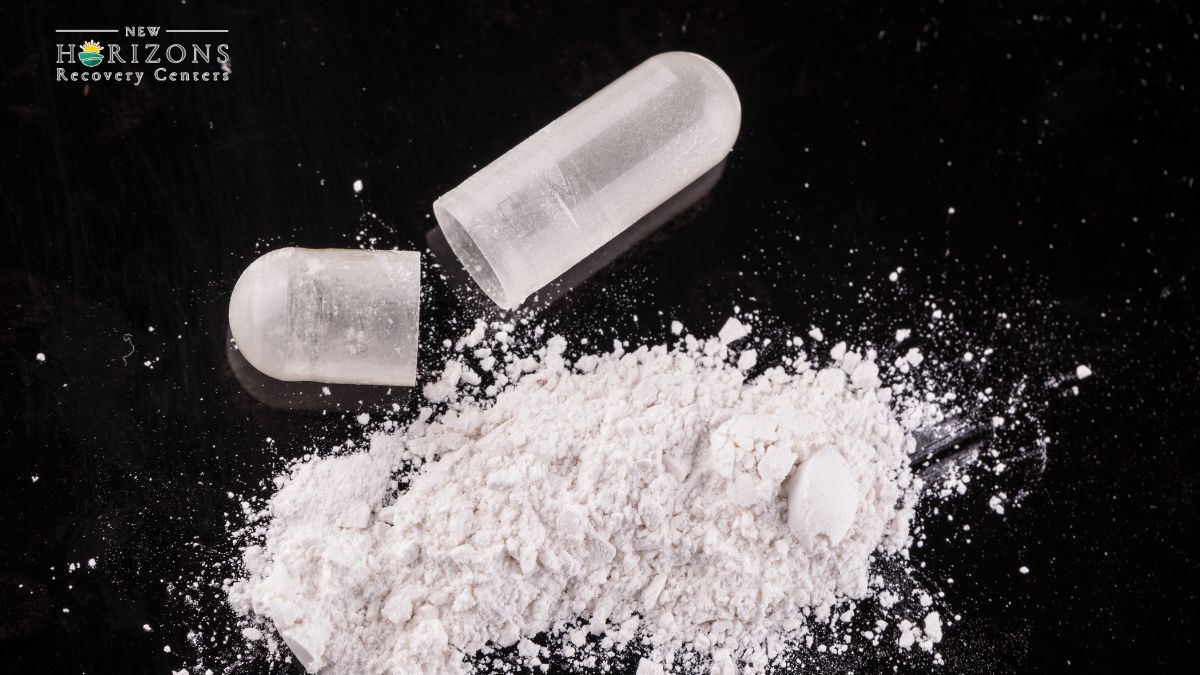Substance Abuse Recovery: A Continuous Journey
In the process of substance abuse recovery, it is important to recognize that it is not a one-time event but rather a continuous journey. Understanding the recovery process and the role of aftercare is crucial in sustaining long-term recovery.

Understanding the Recovery Process
The recovery process involves more than just quitting substance abuse. It is a comprehensive journey towards physical, mental, and emotional healing. It requires individuals to address the underlying causes of their addiction, develop healthier coping mechanisms, and rebuild their lives.
Recovery is a multifaceted process that involves different stages, including:
- Recognition: Acknowledging the presence of a substance abuse problem and the need for change.
- Detoxification: Clearing the body of substances and managing withdrawal symptoms under medical supervision.
- Rehabilitation: Participating in therapy, counseling, and other evidence-based treatments to address the psychological and behavioral aspects of addiction.
- Maintenance: Sustaining recovery by implementing healthy lifestyle changes and ongoing support.
The Importance of Aftercare in Sustaining Recovery
Aftercare plays a vital role in sustaining recovery by providing ongoing support and guidance to individuals after completing initial treatment. It is designed to help individuals navigate the challenges they may encounter in their daily lives and reinforce the skills and strategies learned during rehabilitation.
Aftercare programs offer a continuum of care that extends beyond the initial stages of recovery. They provide a structured and supportive environment that helps individuals maintain sobriety, prevent relapse, and promote overall well-being. By addressing the unique needs and challenges of each individual, aftercare programs significantly increase the chances of long-term success in recovery.
Some key benefits of aftercare include:
Benefits of Aftercare
- Continued support and accountability
- Identification and management of triggers
- Development of healthy coping mechanisms
While the recovery process can be challenging, aftercare programs offer a lifeline of support to individuals as they transition back into their everyday lives. By recognizing the importance of aftercare in sustaining recovery, individuals can enhance their chances of long-term sobriety and achieve a healthier, more fulfilling life.
What is Aftercare?
Aftercare plays a crucial role in the substance abuse recovery process, supporting individuals as they transition from formal treatment programs to a life of sustained sobriety. In this section, we will define aftercare and explore its purpose, as well as the components that make up effective aftercare programs.
Definition and Purpose of Aftercare
Aftercare refers to the ongoing support and services provided to individuals after they have completed a formal substance abuse treatment program. It is designed to help individuals maintain their recovery, prevent relapse, and build a solid foundation for a healthy and fulfilling life.
The primary purpose of aftercare is to bridge the gap between intensive treatment and independent living. It recognizes that substance abuse recovery is a continuous journey and that individuals need ongoing support and guidance to navigate the challenges they may face along the way. Aftercare programs offer a range of services and resources tailored to the unique needs of each individual, promoting long-term success in recovery.
Components of Aftercare Programs
Effective aftercare programs incorporate various components to address the multifaceted needs of individuals in recovery. These components may include:
- Continued Counseling and Therapy: Aftercare programs often provide access to individual counseling and therapy sessions. These sessions allow individuals to explore any ongoing emotional, psychological, or relational issues that may arise during their recovery journey. Counseling and therapy provide a safe space for individuals to work through challenges, develop healthy coping mechanisms, and strengthen their resilience.
- Support Groups and Peer Networks: Aftercare programs frequently include participation in support groups and peer networks. These groups offer individuals the opportunity to connect with others who have experienced similar challenges and triumphs, fostering a sense of community, understanding, and shared accountability. Support groups provide a valuable network of support to navigate the ups and downs of recovery.
- Educational Workshops and Skill-Building: Aftercare programs often offer educational workshops and skill-building sessions to help individuals develop essential life skills. These workshops may cover topics such as stress management, assertive communication, relapse prevention strategies, and healthy relationship building. By equipping individuals with practical tools and knowledge, aftercare programs empower them to navigate the complexities of daily life in a healthy and positive way.
- Continued Monitoring and Accountability: Aftercare programs may involve ongoing monitoring and accountability measures to help individuals stay on track with their recovery goals. This can include regular check-ins, drug testing, and adherence to treatment recommendations. By providing structure and accountability, aftercare programs help individuals maintain their commitment to sobriety.
By incorporating these components, aftercare programs provide individuals with the necessary support and resources to sustain their recovery beyond the initial treatment phase. This comprehensive approach acknowledges that recovery is a lifelong process and underscores the importance of ongoing care and support to ensure long-term success.
Benefits of Aftercare
After completing a substance abuse treatment program, the journey to recovery continues. This is where aftercare plays a crucial role in supporting individuals in their ongoing recovery process. Let's explore the key benefits of aftercare programs for individuals seeking to break free from the cycle of substance abuse.
Long-Term Support and Accountability
One of the primary benefits of aftercare is the provision of long-term support and accountability. Recovery is not a one-time event but a continuous process that requires ongoing guidance and assistance. Aftercare programs offer individuals a supportive network of professionals and peers who understand the challenges of maintaining sobriety.
By participating in aftercare, individuals have access to continuous support from counselors, therapists, and support group members. This support system provides encouragement, guidance, and understanding during times of difficulty, helping individuals stay on track and avoid relapse. The accountability aspect of aftercare ensures that individuals remain committed to their recovery goals by regularly attending sessions and actively engaging in their own healing process.
Addressing Triggers and Relapse Prevention
Another essential benefit of aftercare is its focus on addressing triggers and relapse prevention. During the recovery journey, individuals may encounter various triggers, such as stress, social situations, or negative emotions, that can threaten their sobriety. Aftercare programs equip individuals with the necessary tools and strategies to identify and manage these triggers effectively.
Through therapy sessions, counseling, and educational workshops, individuals learn valuable coping mechanisms to navigate challenging situations without turning to substances. They develop a deeper understanding of their triggers and acquire skills to handle them in healthier ways. This proactive approach to relapse prevention empowers individuals to make informed choices and maintain their sobriety over the long term.
Developing Healthy Coping Mechanisms
Substance abuse often stems from underlying emotional or psychological issues that individuals may struggle to address on their own. Aftercare programs emphasize the development of healthy coping mechanisms, enabling individuals to deal with stress, anxiety, and other emotions in a positive and constructive manner.
Through various therapeutic techniques, such as cognitive-behavioral therapy (CBT) and mindfulness practices, individuals learn how to identify and manage their emotions effectively. They acquire essential life skills that promote self-care, stress reduction, and emotional well-being. By developing healthy coping mechanisms, individuals are better equipped to face life's challenges without resorting to substance use.
The benefits of aftercare in the substance abuse recovery process are invaluable. It provides the necessary support, guidance, and tools for individuals to sustain their recovery efforts. By addressing triggers, promoting relapse prevention, and fostering the development of healthy coping mechanisms, aftercare programs enhance the overall success and long-term well-being of individuals in their journey to overcoming substance abuse.
Types of Aftercare Programs
Aftercare plays a crucial role in sustaining recovery from substance abuse. There are several types of aftercare programs available, each offering unique support and resources to individuals on their recovery journey. Let's explore three common types of aftercare programs:
Outpatient Treatment Programs
Outpatient treatment programs provide ongoing support and treatment while allowing individuals to live at home and maintain their daily routines. These programs offer flexibility and can be tailored to fit individual needs. The frequency and duration of sessions may vary, offering counseling, therapy, medication management, and educational resources.
Outpatient treatment programs are suitable for individuals who have completed a higher level of care, such as inpatient or residential treatment, and are transitioning back into their regular lives. These programs provide continued guidance, relapse prevention strategies, and the opportunity to address any challenges that may arise during the recovery process.
Support Groups and 12-Step Meetings
Support groups and 12-step meetings, such as Alcoholics Anonymous (AA) and Narcotics Anonymous (NA), have long been recognized as valuable sources of support in the recovery community. These groups provide a safe and non-judgmental environment for individuals to share their experiences, receive encouragement, and learn from others who have faced similar challenges.
The 12-step approach, based on a set of guiding principles, encourages personal growth, self-reflection, and accountability. These meetings often involve group discussions, sharing personal stories, and working through the 12 steps of recovery. Support groups and 12-step meetings can be attended in person or online, making them accessible to individuals in various locations.
Sober Living Homes
Sober living homes, also known as halfway houses or transitional housing, offer a structured and supportive environment for individuals in early recovery. These homes provide a substance-free living space where residents can focus on their sobriety while gradually reintegrating into society. Sober living homes typically have rules and guidelines that promote accountability, such as curfews, regular drug testing, and participation in house meetings.
Living in a sober home allows individuals to develop essential life skills, establish healthy routines, and build a strong support network within the recovery community. It provides a safe and stable transition from a more intensive level of care, such as inpatient treatment, to independent living.
Aftercare Program and Description
Outpatient Treatment Programs: Offer ongoing support and treatment while allowing individuals to live at home and maintain their routines.
Support Groups and 12-Step Meetings: Provide a safe environment for individuals to share experiences, receive encouragement, and work through the 12 steps of recovery.
Sober Living Homes: Offer a structured and substance-free living environment for individuals in early recovery, promoting accountability and gradual reintegration into society.
By understanding the different types of aftercare programs available, individuals in substance abuse recovery can choose the approach that aligns with their needs and preferences. It's important to remember that aftercare is a personalized and continuous process, providing the necessary support and resources to maintain lasting sobriety.
Creating a Personalized Aftercare Plan
To ensure a successful and sustainable recovery from substance abuse, it is crucial to create a personalized aftercare plan that addresses individual needs, identifies available resources, and sets realistic goals and strategies. This tailored approach maximizes the chances of long-term sobriety and overall well-being.
Assessing Individual Needs
Assessing individual needs is the first step in creating an effective aftercare plan. It involves evaluating various factors, such as the severity of the substance abuse, any co-occurring mental health conditions, and the support system available. By understanding the specific challenges and requirements of the individual, a comprehensive aftercare plan can be developed.
Some key considerations for assessing individual needs include:
- Substance abuse history
- Co-occurring mental health conditions
- Physical health status
- Social support system
- Employment or educational needs
Identifying Available Resources
Identifying available resources is essential for implementing an aftercare plan successfully. These resources can include a wide range of options, such as support groups, counseling services, vocational training programs, and medical professionals specializing in addiction recovery. By understanding and utilizing these resources, individuals can access the support and guidance necessary to maintain their recovery journey.
Here are some examples of available resources:
Resource and Description
Support Groups: Non-profit organizations offering peer support and recovery-oriented meetings.
Counseling Services: Professional therapists or counselors specializing in addiction recovery.
Vocational Training Programs: Programs designed to enhance job skills and employment opportunities.
Medical ProfessionalsDoctors, psychiatrists, or addiction specialists providing comprehensive medical support.
Setting Realistic Goals and Strategies
Setting realistic goals and strategies is a vital component of an effective aftercare plan. By establishing achievable objectives, individuals can maintain focus, measure progress, and stay motivated throughout their recovery journey. These goals can encompass various aspects, including sobriety milestones, mental health management, and personal growth.
Some examples of realistic goals and strategies include:
- Sobriety goals: Setting milestones for sobriety, such as staying drug-free for a specific period.
- Relapse prevention strategies: Developing coping mechanisms and identifying triggers to minimize the risk of relapse.
- Healthy lifestyle changes: Implementing regular exercise, adopting a balanced diet, and practicing stress management techniques.
- Pursuing education or vocational opportunities: Engaging in educational programs or vocational training to enhance career prospects and personal growth.
By creating a personalized aftercare plan that takes into account individual needs, available resources, and realistic goals, individuals can establish a solid foundation for sustained recovery. This comprehensive approach ensures a supportive network, effective strategies, and a clear path towards a healthier and fulfilling life beyond substance abuse.
Sources
Why Aftercare Is an Important Part of Recovery






-ink.jpeg)
